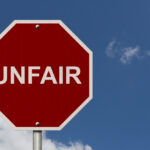What can I do about Annoying Neighbours: Noise Control and Nuisance Orders NSW

Having neighbourhood disputes? Why not televise it? At least this is what one Television station in New Zealand has decided to do in their long-running TV show, Neighbours at War.
While New Zealand has chosen to cash in on nuisance neighbours, televising neighbourhood disputes since 2005, it is probably better to take some legally-sanctioned action instead.
You might be facing temptation to engage in petty neighbourhood wars, but it is far best to explore your legal rights first.
Many common noise pollutions have a legal remedy.
Under the Protection of Environment Operations Act 1997 (NSW), Environment Protection Authority officers as well as other public officials such as members of NSW Police, can institute noise abatement directions if a business, residence or individual is emitting ‘offensive noise’.
Offensive noise is defined under the Dictionary of the Act as:
(a) that, by reason of its level, nature, character or quality, or the time at which it is made, or any other circumstances
(i) is harmful to (or is likely to be harmful to) a person who is outside the premises from which it is emitted, or
(ii) interferes unreasonably with (or is likely to interfere unreasonably with) the comfort or repose of a person who is outside the premises from which it is emitted, or
(b) that is of a level, nature, character or quality prescribed by the regulations or that is made at a time, or in other circumstances, prescribed by the regulations.
Under section 276 of the Act a noise abatement direction may be be issued if an authorised person believes that offensive noise is being, or has at any time within the past 7 days been, emitted from any premises. The authorised person may make either or both of the following directions:
- direct the person whom the authorised person believes to be the occupier of the premises to cause the emission of the offensive noise to cease, or
- direct any person whom the authorised person believes to be making or contributing to the making of the noise to cease making or contributing to the making of offensive noise.
Contravening a noise abatement direction could result in a penalty notice of $200 for an individual or $400 for a corporation at the time of writing, or a maximum fine of $3,300 if the person elects (chooses) to take the matter to court.
You can get a noise control order under section 268 of the Protection of the Environment Operations Act. This section allows you to apply to your local council. If they are satisfied that the noise exists and is likely to recur on the same premises they can:
- Order that the respondent abates the offensive noise within a specified time frame; and/or
- Order that they prevent a recurrence of the offensive noise
Contravening these orders may see your neighbour slapped with a $3,300 fine. This may be better revenge than keying their car or turning off their electricity.
However, going to court could see you up for costs, however courts may decide to allocate the costs as they see fit.
On the other hand, if the problem is a one-off occurrence, such as loud music, you can contact your local council or the police who will issue a warning.
Pets may also be the subject of nuisance orders. A nuisance dog may be one that is:
- Habitually at large;
- Persistently makes noises to a degree or extent that they unreasonably interfere with the peace, comfort or enjoyment of neighbours;
- Defecates on private property other than that of its owner;
- Repeatedly runs or chases animals, people or vehicles;
- Endangers the health of people or animals; or
- Repeatedly causes damage to anything outside the property where it is normally kept
Cats, similarly may be the subject of nuisance orders in NSW if they persistently make noises to a degree or extent that they unreasonably interfere with the peace, comfort or enjoyment of neighbours, or repeatedly damage anything outside the property where they are usually kept.
You may be able to obtain an order for the owner to restrain a dog or cat from the offending behaviour. The orders stay in force for 6 months and fines apply for owners who disobey. It is, however possible, for your neighbours to appeal a nuisance order in NSW.
Noise from vehicles is also regulated – partially by the Road Rules, which regulate the use of horns, excessive revving and even Road Rule NSW 291(1) which states that engines in stationary cars must be turned off to prevent excess noise.
We even have legislation to dictate acceptable times for mowing the lawn, for those who just don’t have good lawn mowing etiquette. These regulations make it an offence to mow your lawn before 7am and after 8pm, except on a public holiday or Sunday where it is against the law to mow your lawn before 8am.
And if your neighbour is convinced they are going to be a big hit on the next season of Australia’s Got Talent and you can hear them practising every waking moment, you can certainly make a complaint.
Time restrictions are placed on loud musical instruments, as well as TVs, radios, tape recorders, CDs and DVDs, which means that neighbours may not inflict their musical and theatrical taste on you between the hours of midnight and 8am on Fridays, Saturdays and any day before a public holiday. On other days, this is 10pm to 8am.
Receive all of our articles weekly
Author






